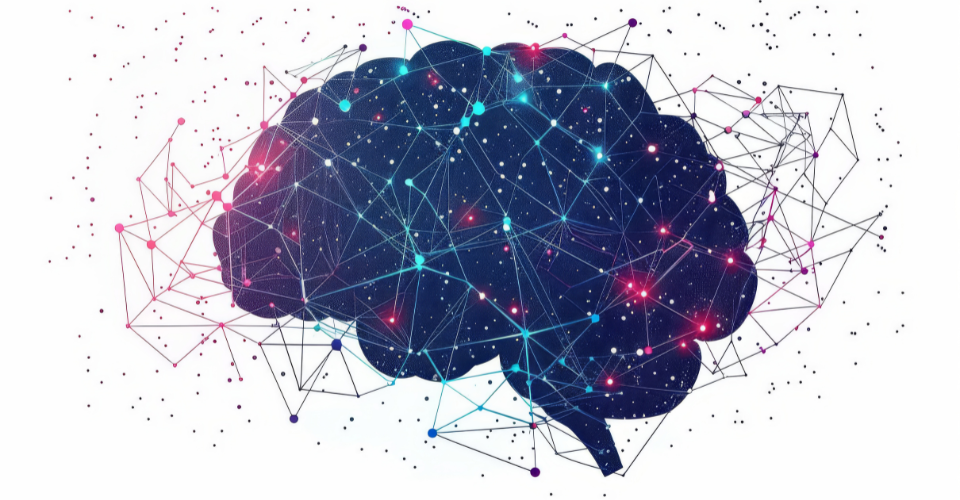Creativity, the force behind artistic expression and innovation has fascinated scientists and artists for a long time. But do we actually know what happens in our brain when we think creatively? It has been discovered that creative ideas are generated not only by but also through the brain’s Default Mode Network (DMN). In this regard, it has been found out how new concepts are formed in our brain and how creativity is nurtured.
The Default Mode Network: The Brain’s Creative Hub
DMN is a connectivity of brain regions activated at rest or during daydreaming or mind wandering. This part of the brain comes alive as we remember the past, wander in thoughts on future desires and ponder over other people’s ideas. Before now, DMN had been associated with creativity but it was just theoretical. However, scientists can now prove beyond any doubt that DMN not only correlates with creative thinking but is responsible for making inventive ideas to come.
New Study Confirms the Contribution of DMN to Creativity
Neuroscientists have recently established the contribution of DMN towards creativity. The study involved patients undergoing treatment for epilepsy whose condition gave researchers access to their brain activities. These participants had electrodes placed within their skulls thus allowing scientific monitoring of cerebral functioning at an unprecedented scale of accuracy.
Participants were requested to carry out three tasks: these were creative thinking task, mind-wandering task and sustained attention task. The creation task called Alternate Uses Task required participants to give various novel uses for everyday objects like chairs or paper clips within a given time-frame. During mind-wandering task, participants stared at neutral visual stimuli while letting their minds roam free; sustained attention task was simple visual cues demanding complete focus.
Decoding Brain Waves: Connecting DMN with Creativity
The study examined two types of brain waves observed during these tasks namely gamma waves which represent local neural activity and theta waves linked to communication between different brain regions. Through studying these brain waves, the scientists could understand how various parts of DMN interacted with other parts when a person was thinking creatively.
There are significant results to show this. During the creative task, DMN showed a particular pattern of activity that is distinct. The DMN became quite active when participants were given an object and asked to think about new ways in which it could be used. This indicated that, as they keep generating and refining ideas in their minds, the DMN network gets synchronized with other networks involving executive functions such as decision-making and problem-solving. This synchrony implies that the DMN takes part in formulating innovative thoughts which are further refined through other processes of cognition before final acceptance or rejection.
Disrupting DMN: Reducing Creativity
The investigators further investigated how the DMN could influence creativity by interfering with its activities through electrical stimulation. They found that when the participants’ ability to be creative was diminished by reducing the activity of the DMN, they became less original and more predictable in their thinking. This implies that creativity is not just linked to but rather necessitates activity in what Kharkhurin (2014) terms as ‘DMN for novel ideas generation.’
It is worth noting that this disruption did not have any effects on the subjects’ performance on a mind-wandering task hence implying that creativity is different from other forms of self-introspection. In short, it follows that DMN is a complex structure with some specific functions contributing to how people think creatively.
Implications for Understanding Creativity
Accordingly, it has been demonstrated beyond any doubt by this study that the functioning of DMN is necessary for original thinking and thus creation. The findings of this study provide new insights into understanding brain mechanisms underlying creativity and its implications in clinical practice. For instance, comprehension about how brain supports creativity may eventually result in developing techniques for enhancing individual’s creative thinking through targeted stimulation of their brains or cognitive exercises among others.
A Step Forward in Neuroscience and Creativity
However, as impressive as these findings are, it should be noted that there are several limitations attached to them. First, only thirteen patients who were undergoing treatment for epilepsy participated in this research; therefore generalizing its results could be misleading. Second, while certain regions within the DMN were focused on during the investigation, there are other areas and networks which also play important roles during creativity processes. However researchers claim that this research takes us closer to understanding how our brains generate ideas.
Conclusion: Embracing the Power of the DMN
Creativity still remains one of humanity’s most revered mysteries; however this study is making progress in that regard. The DMN, long viewed as the “brain at rest” network, has now been shown to be a critical component of creative thought processes. As scientists continue to unravel the mysteries of the brain, the potential to harness and enhance our creative abilities becomes ever more exciting. From new techniques for stimulating the DMN to a deeper understanding of fostering creativity in everyday lives, there are limitless opportunities.





























Leave a Reply
You must be logged in to post a comment.